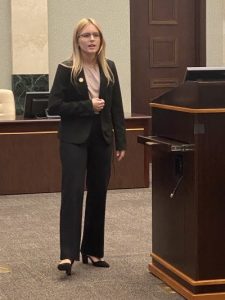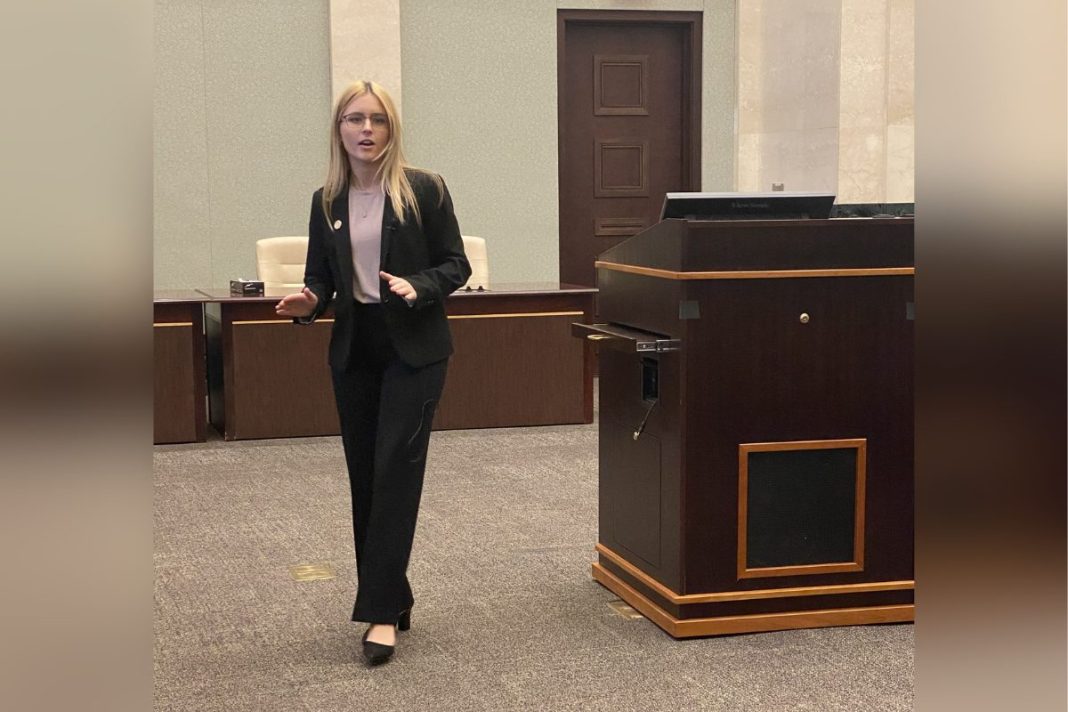It only took me a few weeks into my summer associate program for me to realize I was exactly where I needed to be.
I was asked to help a partner craft certain objections to an opposing counsel’s closing argument for trial. What started as a simple research task quickly turned into writing multiple memos, formulating arguments, analyzing case law and strategizing with the trial team. When the trial finally arrived not only did I get the opportunity to observe, but I got to see my arguments get used successfully in court during closing arguments.
Sitting in that courtroom listening to my arguments come to life was surreal. This wasn’t just busy work or a random research assignment, it was an actual opportunity to contribute to the team.
This moment changed my perspective; it showed me what was truly important when it comes to a summer associate program. It is easy to get distracted by flashy social events or big-name prestige, but the programs that truly shape your legal career are the ones that give you real responsibility, real mentorship and a real sense of what it is like to be a practicing attorney.
Summer associate programs are not just resume builders; they shape your early career. So, whether you are evaluating offers or just beginning your law firm search, here are six things for you to consider and look for in a program that will prepare you to become the best attorney you can be.
- Mentorship that is real, not just assigned
The best summer programs do not just assign you a mentor and say good luck, instead they surround you with people who are genuinely invested in your growth.

During my summer, I was lucky to have a few of those people. My assigned mentor gave me real assignments, took me to client meetings, depositions and mediations and she did not sugarcoat anything. Whether it was how to respond to opposing counsel who wasn’t exactly playing nice or what it is like being a woman in a male-dominated field, she did not just show me how to be a successful and respected attorney, she showed me what to expect.
At the same time, a partner I worked closely with saw my interest in litigation and took the time to nurture it. He walked me through his trial prep strategy, gave detailed feedback on different assignments and most importantly, he treated me like a colleague, not just an intern. We had a similar way of thinking, and he took my ideas seriously. That kind of relationship did not end at the end of my summer, instead it carried on through my last year of law school and even to this day as an associate.
Now, as a full-time attorney, I have been on the other side of it. I spent much of this past summer mentoring one of our associates through our program. I answered tough questions, gave her peace of mind and tried to offer the kind of support I had received and that I knew made a difference.
The truth is, a good mentor will not only guide you, they will also know when to step back and let you figure it out on your own. They will create space for questions and learning opportunities.
- A culture where asking questions is encouraged
Even with great mentorship, your summer experience will challenge you and that is the point. The difference between surviving and thriving often comes down to one thing: whether or not you feel safe asking questions. The best programs do not just allow questions, they encourage them… out loud. They make it clear from day one that you are not expected to know everything; you are expected to learn.
What stuck out to me most during my summer was how everyone, from secretaries to senior partners, made it clear that my learning mattered. I was told more than once: “Ask anything. Don’t sit stuck. We’ve all been there.”
I was not left to figure things out in silence or made to feel embarrassed for not knowing what a term meant. That kind of open-door culture matters. It shows up in the way attorneys take time to walk you through an assignment, invite you to sit in on a call or pause to explain their reasoning. It creates space for real growth because you are not wasting energy pretending to know what you don’t.
As a summer, you should not feel like you are being tested on what you already know, instead you should feel supported in learning what you don’t.
- Work that challenges and excites you
Not every assignment you get as a summer associate will be flashy or fun. Some will feel tedious, unfamiliar or completely outside your comfort zone. But those are the assignments that teach you how to think like a lawyer. When you are given a new opportunity take it, even if it is scary or intimidating. Try something outside your intended practice area. Volunteer for the writing assignment or offer to help draft a brief, motion or contract. You will never know what you enjoy (or what you are good at) unless you give it a shot. When a firm is open about teaching at all levels, it shows a culture that values growth, transparency and collaboration. That kind of environment challenges you, while making you feel supported every step of the way.
- A culture you can see, not just hear about
Culture is not just what a firm puts on its website, it is the way people treat and trust each other.
One of the clearest signs of a strong program is collaboration. During my summer, if I had a question, I could walk into any office and get advice without hesitation. That openness showed me the firm valued teamwork over hierarchy.
Leadership matters too. Find an office in which you feel represented. When I looked around at the people with whom I worked, I felt a sense of belonging. To me it was important to see women in associate and partner positions. This type of representation spoke volumes about inclusion and the chance for opportunity.
- A path for growth
A summer program should not just be about filling 10 weeks with assignments. The best ones give you tools you will carry forward as a lawyer. For me, that looked like receiving feedback I could use. Specific feedback builds real confidence and gives you a roadmap for improvement.

Each program is unique and designed around the skills the firm wants its future attorneys to develop. Mine included hands-on seminars and workshops where we learned core litigation skills. All this training led up to a mock trial where every summer associate put those lessons into practice. It tied everything we learned together and showed us just how far we had grown in such a short amount of time. The program prioritized growth and learning. It was clear that the firm was not just training summers, they were preparing future associates.
- A seat at the table: Feeling like your voice matters
Great programs and great firms do not just let you sit in the background. They let you contribute. They give you a voice. Whether that means drafting contracts, preparing a motion, offering your view on a case or connecting with clients, those moments matter. They show you what being an associate will truly be like, and they make clear that your role is not temporary. For me, that realization came when I saw my work used in trial.
That moment in the courtroom did not just make my summer, it shaped how I now see my future. It reminded me that summer associate programs are not just a 10-week preview, they are a foundation.
One day, you will not just be the student whose memo makes it into a closing argument, you will be the one standing in front of the judge arguing it. You will be the one drafting the major client contract, closing a massive deal, settling a case during mediation or cultivating client relationships.
So, make sure you choose a program that gives you that kind of clarity, confidence and belief in your own potential because you are not just looking for a summer job, you are shaping the kind of attorney you want to become.

The right program does not just give you a desk and name plate, it gives you the tools, mentors and moments that show you exactly where you belong.
Renee Duffy is an associate attorney at RumbergerKirk focusing her practice in the areas of casualty and trucking litigation. She participated in the 2023 RumbergerKirk Summer Associate Program where she won “Best Advocate” during the program’s mock trial. She earned her J.D. at Stetson University College of Law in 2024.

